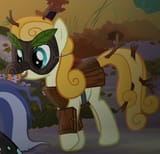Search Results
6/29/2025, 11:09:59 PM
>>42310919
>in Schopenhauer's or Nietzsche's models of the world, surrogate activities could probably be seen as outlets for the restless will, which probably are a necessity to avoid insanity in a world where one doesn't have to fight for survival.
Just responding to this point in this already way off-topic thread, but this is something I've looked into lately, and it isn't how humans (used to) live. For our ancestor tribesmen, despite living in much less secure conditions than we do now, their world was arguably less survival-oriented than ours is today. Hunting was done in parties, but participation was not strictly enforced; it was encouraged, and had the form of play: it was fun to do. Exchange of goods (it's hard to call it "trade" with our current concept of property) was done in the form of play, finding a partner was done via play. Play harnesses man's fundamentally social nature, fosters cooperation and mitigates strife, and therefore increases our chances of survival. Ritual is in a sense the play pertaining to myth, and that ties back to the earlier topic.
The world of the hunter-gatherer was much richer in play than ours is today, with assembly line factories, taxes, and school exams. Ironically, we have lost the value of play. Ted may have been on to something with his denouncement of the industrial revolution, though arguably he really should have blamed the agricultural revolution, where food surpluses led to social hierarchy, exploitative labour, and war. Play is human, while toil and violence are un-human, aberrations from our monke nature and deficiency in our culture, and that's why I take issue with their philosophy. Nietzsche and Kaczynski did not know anthropology, and their personal experiences are projected on their perception of the human condition at large.
It's interesting that you hesitantly bring up art as a surrogate activity, too, and I hope the rant above somewhat puts that idea into perspective. pic unrelated
>in Schopenhauer's or Nietzsche's models of the world, surrogate activities could probably be seen as outlets for the restless will, which probably are a necessity to avoid insanity in a world where one doesn't have to fight for survival.
Just responding to this point in this already way off-topic thread, but this is something I've looked into lately, and it isn't how humans (used to) live. For our ancestor tribesmen, despite living in much less secure conditions than we do now, their world was arguably less survival-oriented than ours is today. Hunting was done in parties, but participation was not strictly enforced; it was encouraged, and had the form of play: it was fun to do. Exchange of goods (it's hard to call it "trade" with our current concept of property) was done in the form of play, finding a partner was done via play. Play harnesses man's fundamentally social nature, fosters cooperation and mitigates strife, and therefore increases our chances of survival. Ritual is in a sense the play pertaining to myth, and that ties back to the earlier topic.
The world of the hunter-gatherer was much richer in play than ours is today, with assembly line factories, taxes, and school exams. Ironically, we have lost the value of play. Ted may have been on to something with his denouncement of the industrial revolution, though arguably he really should have blamed the agricultural revolution, where food surpluses led to social hierarchy, exploitative labour, and war. Play is human, while toil and violence are un-human, aberrations from our monke nature and deficiency in our culture, and that's why I take issue with their philosophy. Nietzsche and Kaczynski did not know anthropology, and their personal experiences are projected on their perception of the human condition at large.
It's interesting that you hesitantly bring up art as a surrogate activity, too, and I hope the rant above somewhat puts that idea into perspective. pic unrelated
Page 1
